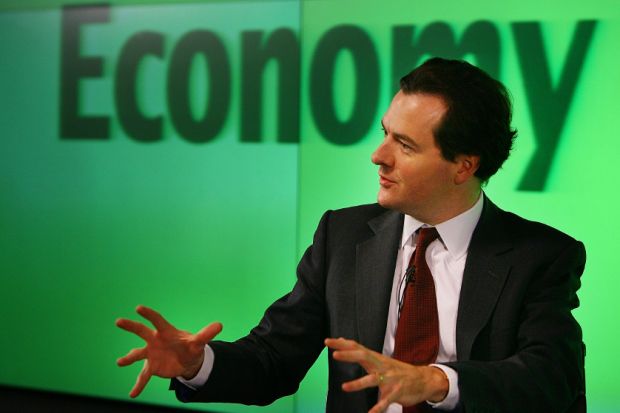The government admits that its plans to make graduates pay more for their loans by freezing the £21,000 repayment threshold are “a change from when the policy was first introduced”.
Bahram Bekhradnia, president of the Higher Education Policy Institute, said the government’s moves were “cynical and immoral”, after a consultation on the plans was published today by the Department for Business, Innovation and Skills.
In 2010, when the government was preparing to steer the trebling of fees to £9,000 through Parliament and trying to persuade Liberal Democrat MPs to back the changes, David Willetts, who was then universities and science minister, told MPs: “We will increase the repayment threshold to £21,000, and will thereafter increase it periodically to reflect earnings.”
But in this month’s Budget, George Osborne, the chancellor, said the government would instead consult on plans to freeze the threshold at £21,000 for five years from 2016.
The consultation outlines three options: to freeze the threshold for all borrowers, existing and new, for five years from 2016; to freeze the threshold for five years for new borrowers only at the level the threshold reaches in April 2020, when they would begin repaying their loans; or to go ahead with the government’s original plan to increase the threshold in line with earnings.
Freezing the threshold for all borrowers, existing and new, is the government’s “preferred option”, says the consultation.
Existing borrowers would have taken out loans from 2012 onwards, when £9,000 fees were introduced, in the belief that the repayment threshold would be increased in line with earnings, as pledged by the government. The move on existing borrowers would raise £3.2 billion for the government, it estimates.
“We recognise that this proposal represents a change from when the policy was first introduced,” BIS says in the consultation. “We are consulting to gather views on the new proposal to ensure higher education remains open and affordable to students, graduates and fair to all taxpayers in the long term.”
Mr Bekhradnia said that Hepi had warned “from the outset that the new financing arrangements were unsustainable and that the only way to make them work would be to change the repayment terms – they were a false prospectus. So we are not surprised they have been changed.”
But he said it was “a disgrace and not worthy of any government” that the changes would be imposed on those who have already taken out loans, adding that it set a “shocking precedent” for government financial offerings, including public sector pensions.
He added: “This is a cynical and immoral response to the original miscalculation [on the costs of the £9,000 system] – which itself was either incompetent or a politically motivated misrepresentation designed to bridge the gap between the coalition partners.”
Universities UK is still yet to offer a public comment on the government’s plans. That is despite the student funding panel set up by UUK, and chaired by its president, Sir Christopher Snowden, recommending in its report last month that there should be a repayment threshold freeze if changes were needed to the student loans system.
However, publicly backing the change to make graduates pay more for their loans could expose vice-chancellors to criticism from students.
A spokeswoman said UUK “cannot comment until we have reviewed the consultation with our members”.
Andrew McGettigan, author of The Great University Gamble and an expert on the student loans system, said on his blog that it was “fundamentally unfair to impose such changes after individuals have signed up for loans. The silence of the universities on this matter is worse than their craven behaviour in 2010.”
Register to continue
Why register?
- Registration is free and only takes a moment
- Once registered, you can read 3 articles a month
- Sign up for our newsletter
Subscribe
Or subscribe for unlimited access to:
- Unlimited access to news, views, insights & reviews
- Digital editions
- Digital access to THE’s university and college rankings analysis
Already registered or a current subscriber?






